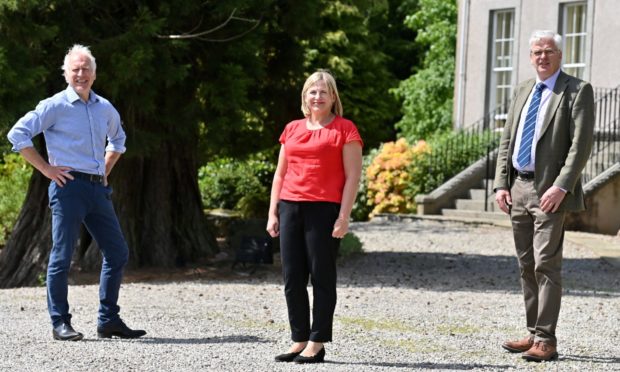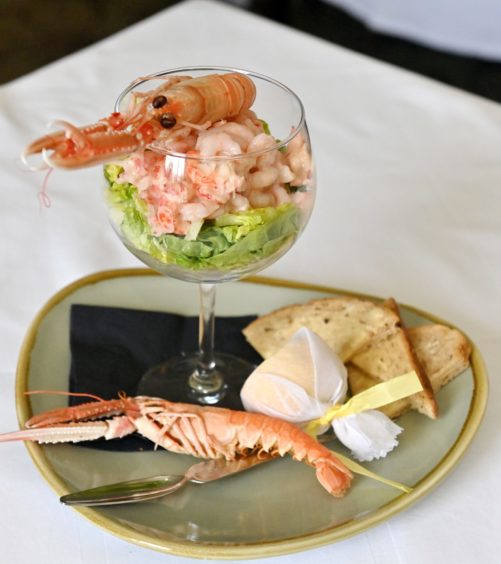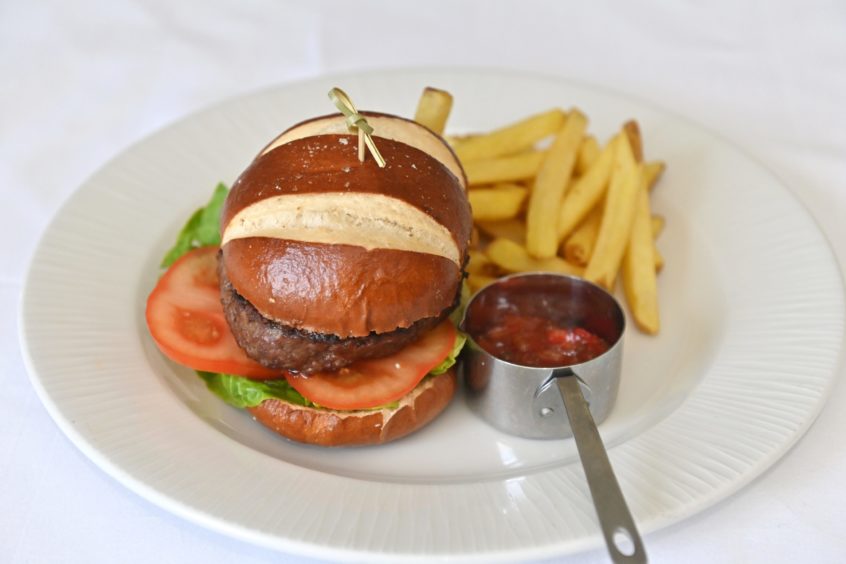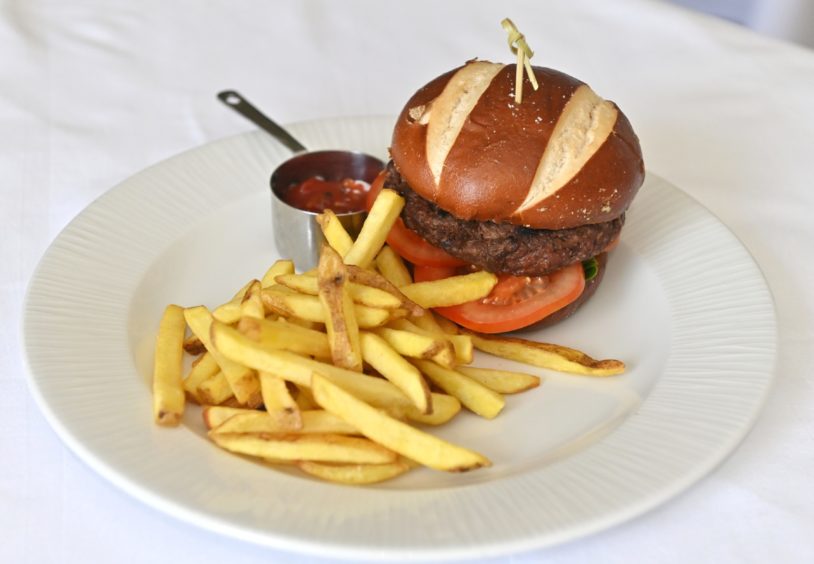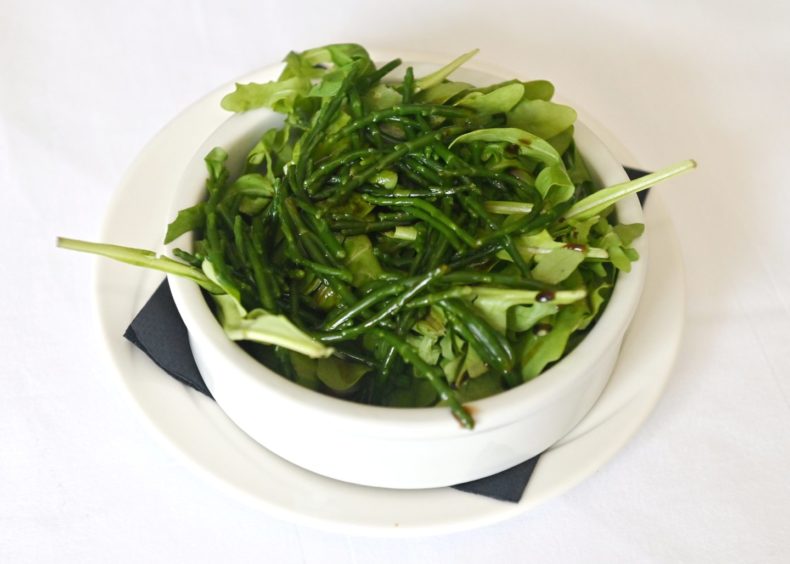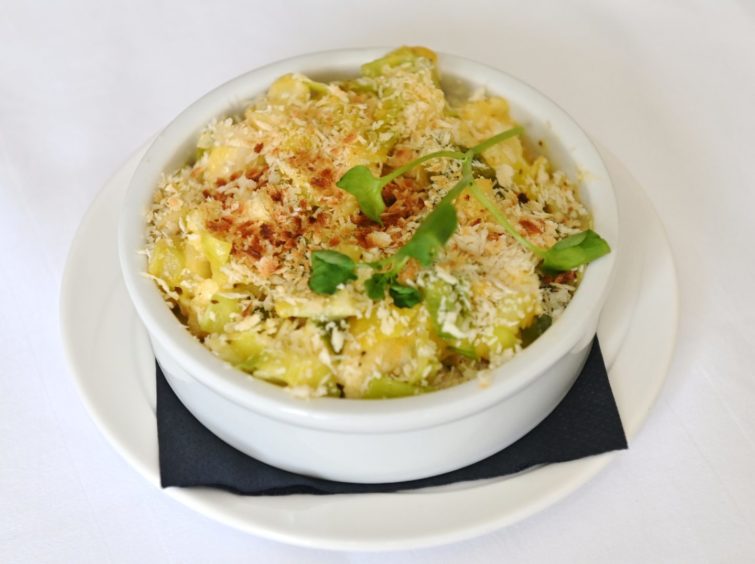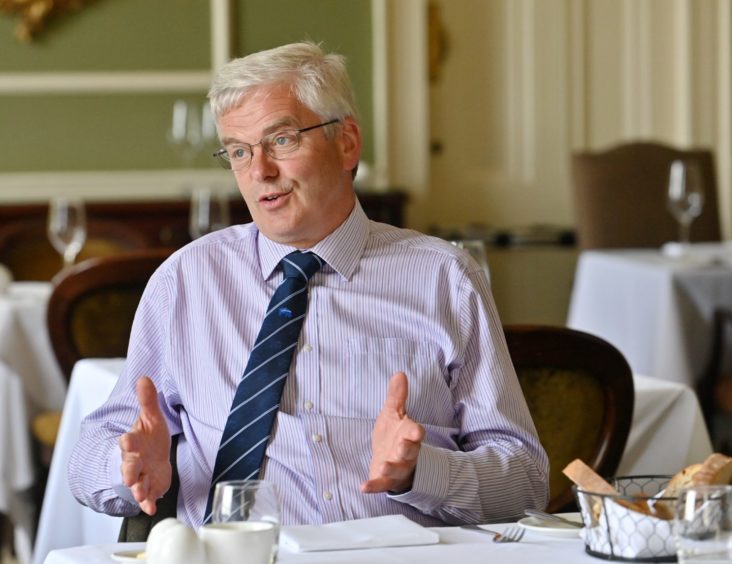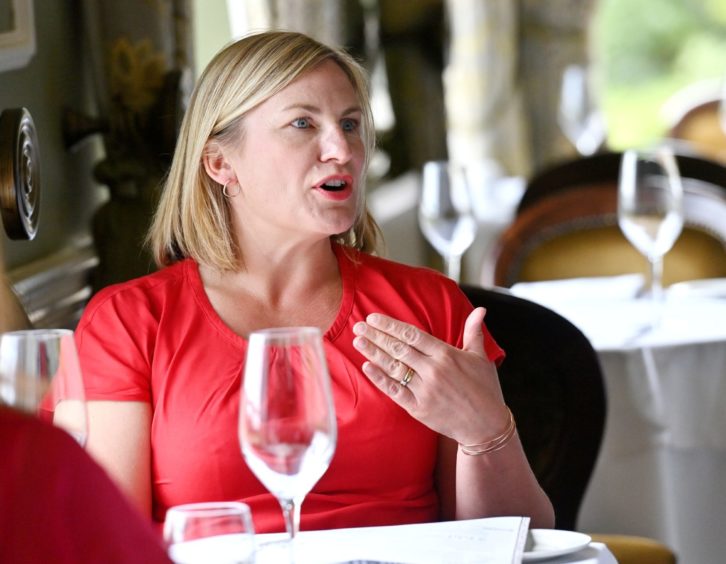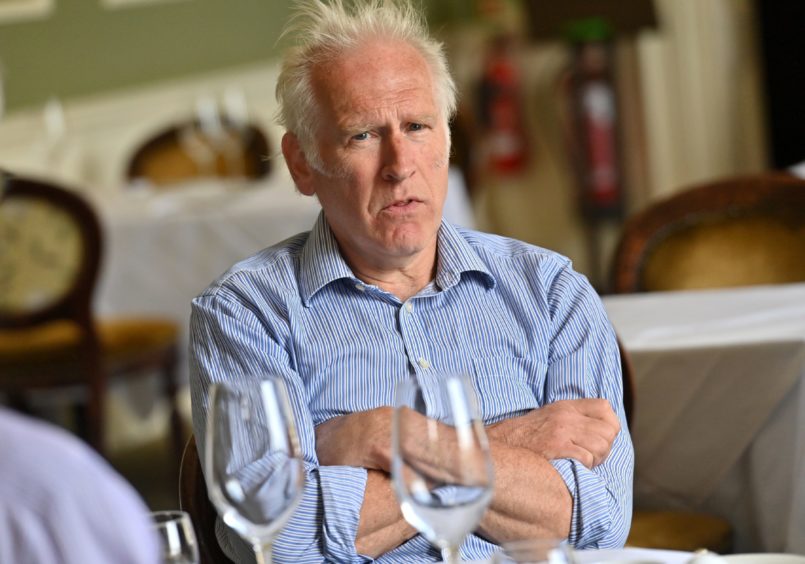It has been a long time, but at last rules on business events had eased enough for a trio of people for whom the food industry in the north-east is the stuff of life to meet for The Lunch.
To Thainstone House, the 18th century mansion home, which has a motto – QUOD PETIS HIC EST or, “What You Seek Is Here”. Our guests were seeking a convivial meeting within safety guidelines to discuss the issues facing their business operations over a pleasant meal, and they were not disappointed. The hotel, a jewel in the Crerar Hotels crown, is also a stone’s throw from the auction mart operated by ANM Group, a major centre for the rich agricultural sector the region hosts.
Like for so many, it’s been a torrid year or so since the pandemic and then Brexit, each having had distinct impacts across all parts of the food supply chain, from fishers struggling to get fresh produce to Europe or farms and their shops struggling to attract and retain workers.
As burgers and a main-course sized prawn cocktail with a flourish of langoustines was ordered, a trade deal with Australia was in the process of being struck – will this help or hinder the sector, or our guests?
Roderic Bruce raises 400 sows on his family farm in Ellon and is also the chairman of the co-operative marketing group, Scottish Pig Producers.
“We feed them on the grain we grow on the farm. We try to make best use of the manure from the pigs to feed the crops. There’s no transport cost of the feed or anything,” he said as he tucked into his Crerar Home Farm signature venison burger. This day there was no pork on the menu.
He’s not worried about the UK pork market being deluged by Australian produce as a result of any trade deal – although he admits that a similar agreement with the USA would be cause for concern.
“It’s when they move to America and Canada for trade. They have soya and maize there. They seem to have a much lower cost of production than we do.”
Covid has had more of an impact on north-east pig farmers, where 60% of Scotland’s pork is produced. An outbreak of the virus at the industry’s main abattoir at Brechin not only shut down production, the facility, Quality Pork Limited (QPL), had to surrender its license to export to China.
Lockdown consumers bring home the bacon
“The pig industry cruised through the start of lockdown no problem,” he recalled.
“Then 21 January we had our first Covid-positive case in Brechin. By the Saturday it was up to 43 out of a staff of around 100. They had to close the plant. That was bad enough because we had a backlog on farm. We lost three weeks of that.
“Then it surrendered the China license, which Defra advised us to do. That was a bit sad because the China market really complements the Scottish market – because the bits the Chinese pay highly for, we don’t eat. That has lowered the value of a pig by £15 – around 10%. Margins are quite slim in that industry, so it makes all the difference.”
He said the Scottish Government “stepped up to the plate”, paying farmers £15 per pig up to the end of March – “but nothing since then”.
He added: “We have been selling pigs elsewhere rather than through our own abattoir. They’ve gone down to a three-day week and put their staff on furlough. But fortunately, the market is strong and retail is strong.”
Anna Mitchell, who heads up the highly popular shop and café at Castleton Farm about 30miles south of Aberdeen, is another guest. Recently the enterprise launched a range of ready meals, which it started producing when the café was forced to shut under lockdown.
Castleton began offering local home delivery of ready meals alongside grocery staples traditionally available in the shop around Laurencekirk and Stonehaven, then expanding further out to Montrose and Aberdeen.
“It was like a new business we had started,” she said, as her king prawn and Fraserburgh-landed langoustines cocktail arrived.
However, as trade has opened up and customers started to come out rather than stay in, the business has had to think again about local delivery. What they did discover was a growing trend for convenient ready meals that could be met on a national basis.
She said: “We didn’t expect it to stay at the same level, but it totally fell away and we stopped it.
“We are changing our model so we can courier out boxes of ready meals – to older people, so their daughter can organise a delivery of ten meals that can go in the freezer. There is also the market for young people who have left home so mum can make sure they are fed. That is what we are working on where you can send it anywhere rather than the local market.”
Famous for its berries, Castleton also struggled when the pandemic plus the UK’s departure from the European Union delivered a double whammy on staff, which meant the farm had to recruit local rather than the European workers they had previously relied on to harvest their crop.
She said: “The usual pickers couldn’t get here so we had a thousand local people who applied for jobs. We offered 400 an opportunity to work. About 200 came and tried it, and about 100 kept going. Laterally there were about 30 which stuck it out to the end.”
British workers aren’t enough
It was an interesting experiment but one they’d rather not have to repeat. She added: “When hospitality opened again a lot of them went back to what they were doing before. It got us out of a hole at the time. But it does show there is a need to allow seasonal workers into the country, because if it was down to the Brits, it wouldn’t work.”
She said the Seasonal Agricultural Workers Scheme has increased the number of people allowed to work in the UK, but since lockdown has eased, the dearth of workers – or people willing to work – has widened beyond the polytunnel fields.
“For the shop and café side, staffing is a problem as well,” she said. “It is difficult to get people just now. Everywhere around us is advertising for cooks and waiting staff.
“During lock down, a lot of people left the industry because of the uncertainty. Maybe chefs realised there’s more to life than split shifts and working long hours for – let’s face it, not the most pay.”
Peter Cook is the director of food drink and agriculture at Opportunity North East (ONE), a private-led economic development agency with aims to grow the sector in the region.
ONE is leading the development of Seedpod, a “hub” backed with £10million from the city region deal and a further £4.4m from ONE set to be built near the P&J Live on the Scotland Rural College’s (SRUC) Craibstone campus. The facility will have 12 commercial-grade manufacturing and production incubator units and two development kitchens alongside production and storage space, meeting and co-working and collaboration space.
Mr Cook, who also has a farming business based on sheep and malting barley, digs into his prime Scottish beef burger and observes: “It’s a funny time. What we find is businesses are really busy. They have adjusted and now the retail-focused businesses have done really well. Now that food service is opening up there has been a real spike in demand. What the discussion is now is difficulty of supply – people, packaging, ingredients.”
Adding to the challenges, a growing issue for businesses across the food supply chain is the need to address sustainability and carbon footprint. However, while consumers increasingly expect all of it, such as increased animal welfare, reduced food miles and the need to move to net zero carbon, the decisions to meet this are complex and not always easy.
They are not going to reduce production because that means just importing from where the carbon footprint is worse.”
Peter Cook, director of food drink and agriculture, Opportunity North East (ONE)
Mr Cook said ONE is addressing this by developing a project to support the food industry through the complexities of sustainability and net zero. He said: “We are going to do a low carbon strategy for the north-east. It you look at other countries, for example, the Swedish industry, the first thing it says in their strategy is that they are not going to reduce production because that means just importing from where the carbon footprint is worse.
“There’s a lot of controversy about all this. It’s a challenge for the north and Scotland as a whole.”
Ms Mitchell points out that her farm uses heat produced by biomass boilers to extend the berry growing season which adds to its “carbon audit”. But the calculations do not count the blueberries that would have been sent via airplane from as far away as Peru to meet UK demand.
She said: “Because we use biomass boilers to create heat for the shoulders of the season, our carbon output looks higher because of that. But we are displacing imports. You have to look at the bigger picture.
“At one time we were maybe one of the only places in the world picking late in September or October. But then the southern hemisphere started production earlier so we are now competing with them at that time. Everywhere is extending their seasons, there’s more overlap.
“To get them here early they are flown. It just doesn’t make sense why that can be more economical.”
Trends in food and its consumption are changing – for every new business developing a product based on the region’s traditional products such as barley, pork, beef or eggs, there’s several who are producing trendier products like kombucha or non-dairy plant-based “milks”, Mr Cook said. Even Ms Mitchell admits the vegan chocolate cake – enriched with apple sauce – now available at Castleton is “better that the original”.
But demand is still high for more traditional dishes like bacon rolls or steak sandwiches.
Back to those North American pig producers, who may or may not be subject to a trade deal with the UK, what is clear is that consumers now must decide if they want meat that is higher welfare, or lower carbon.
Mr Cook said: “If you intensify, you reduce your carbon footprint. But that’s not what consumers realty want.”
Mr Bruce sums it up: “If you get rid of all the cattle in Scotland it will reduce their emissions and tick that box. Then if you bring in beef from Brazil it’s not going to count. It’s not right, is it?”
